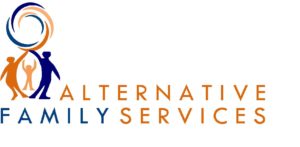Celebrating the Holidays with Foster Youth: Do’s and Don’ts
The end-of-year holiday season, which usually stretches from around Thanksgiving in late November to Christmas and New Year’s Day, is typically associated with cheer, family, food and joy. And while the holiday season is positive for most of us, that’s not always the case for current or former foster youth.
The holidays are commonly associated with family and togetherness, and bring up – and out – a lot of conflicting feelings and emotions for those not being cared for by their biological parents. In one recent informal poll of foster youth, over 80 percent of them said they miss their families during the holiday season, while another 8 percent said that the time of year can be hard when it seems like everyone else has their families around.
“The meaning behind the Holidays is more than stuffing your face with grandma’s homemade pecan pie or getting the year’s hottest toy or even enjoying the music. What it’s all about is coming together as a family and enjoying and treasuring each other’s company. As a foster kid I used to hate the Holidays because I wasn’t with my family,” Daniel Knapp, a former foster youth, has written.
So what can foster parents (now called Resource Parents) and others do to make foster youth feel more comfortable around the holidays? Consider heeding these do’s and don’ts this season.
Do: Talk to Foster Youth Before the Holidays Kick Off
Before anything kicks off, it can be incredibly beneficial to let them know what is about to happen and who they will meet. As a Resource Parent, while you may be used to the hustle and bustle of a relative’s house or the behavior of a loved one, such a situation will all be new and overwhelming for a foster youth. Beforehand, let them precisely what to expect and what will likely happen, so they are not caught off guard.
Similarly, be sure others you’re celebrating the holidays with know about the foster youth and are not surprised by their presence. Recruit those you’re spending the holidays with to do what they can to welcome and include foster youth as much as possible in the festivities.
Don’t: Ignore Their Feelings or Mental Health
As we’ve already established, the holiday season can be a conflicting and emotionally draining time for some foster youth. It may bring out new feelings or behaviors, or exacerbate existing ones. Understand that foster youth often have a lot to process during the holidays – and year-round. Respect their mental health, know that their feelings about the holidays can be complex, and provide help is asked for or required.
Do: Incorporate Their Traditions and Customs
No two families celebrate the holidays in the exact same way. While certain traditions are certainly more common than others, everyone has their own unique and satisfying spin to the holidays – and the families foster youth come from are no different.
When possible, incorporate as many of their traditions and customs into your celebrations. Even adding in little things can make foster youth feel more comfortable and accepted in your holidays. Also respect that foster youth may celebrate holidays you don’t, and vice versa.
Don’t: Make Them Feel Unequal or Unwelcome
During the holiday season, many foster youth feel like outsiders or a burden. For example, Daniel Knapp noted that although his foster family was warm and welcoming, he recalls feeling like a burden and dwelling on minute differences – like how other family members received more presents than he did some years.
“We remember what it used to be like and know how it is now. For most kids all they want it to go home and the holidays is a painful reminder that going home is not an option. It’s especially hard when everyone else is shopping for their moms, dads and siblings and you can’t because you are not allowed to see them,” notes Krista, a former foster youth.
For Resource Parents, try to take steps big and small to ensure foster youth are completely and totally welcome as an equal part of the family, while always being sure to respect their emotions no matter what.
Do: Include Their Wider Community
For many, the holidays don’t stop and end at family. Often, a wider community will be on hand in festivities and in making the holiday what it is.
Resource Parents should aim to include this wider community whenever possible within holiday celebrations. In addition, when permissible, allow foster youth to spend time with relatives and close friends.
“There are just some things in life we can’t control. I can’t control my foster care history and I can’t control other people’s behavior but I can control how I react to life’s circumstances. During the Holiday Seasons past I missed out on so much because I was so focused on issues that were really out of my control. I had every right to feel those feelings but it caused me to miss out on what the Holidays are really about. I still struggle with some of those feelings today that I felt when I was younger and still in foster care, but I don’t let them rob me from enjoying the Holiday Seasons,” Daniel says.
